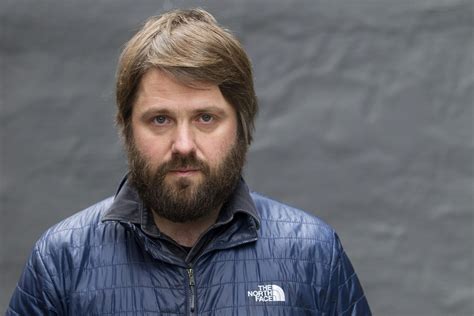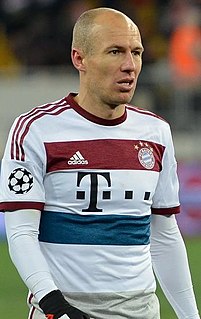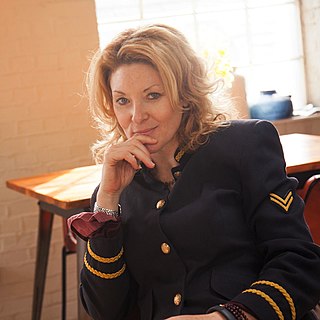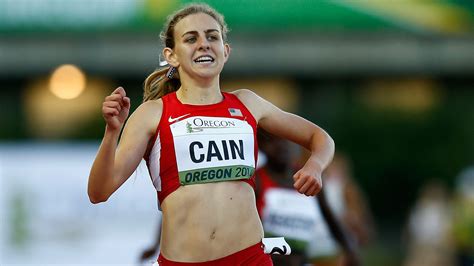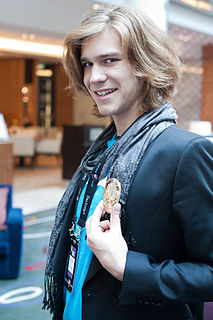A Quote by Dagur Kari
Filmmaking is, a sort of uncontrolled process. I think it's very important to be open to the unexpected and at the same time, of course, maintain your vision, be open to the all the things you didn't think of yourself that can make the film better.
Related Quotes
For me, filmmaking is an ongoing self-reflection process. I kind of push everything to the edge. I feel very exposed and fragile when I make a film. It's a process of dealing with loneliness. And it's also very dramatic - because while you are working on a film, you just realize how incapable you are of dealing with all these things. And you open yourself up, and it's like your heart is utterly exposed. And it's very tiring on a daily basis.
For me it's a dedication to your real interests. It's an ability to be open-minded. Without an open-minded mind, you can never be a great success. The great artists have been open-minded, even though they may seem, like Picasso, to be very directed, you can be directed and open-minded at the same time. I think you have to be really intensely serious about your work, but not so serious that you can't see the lightness that may also involve your life. You have to have that lightness too. You have to not be so heavy-handed and so ostentatious. It's very important not to be.
When you open yourself to the continually changing, impermanent, dynamic nature of your own being and of reality, you increase your capacity to love and care about other people and your capacity to not be afraid. You're able to keep your eyes open, your heart open, and your mind open. And you notice when you get caught up in prejudice, bias, and aggression. You develop an enthusiasm for no longer watering those negative seeds, from now until the day you die. And, you begin to think of your life as offering endless opportunities to start to do things differently.
As a director, you're a bit of a dictator. But I feel that you're a better director if you're open to other people's ideas. It means that it's tougher: you have to be in a choosing process; you have to put the ego aside. As long as everybody's aiming in the same direction... I'm open to my main partners in the film crew.
Your actors need to trust you as a director, but normally, I think you just need to have an open communication between the actors and the director. I think the director needs to really paint his or her vision to the cast and let them know the kind of mood that he or she is making. I think that's very important.
A lot of acting is working with your own psyche in order to allow yourself to be open and reveal yourself. But then of course there's a healthy part of you that says, "Well, don't do that." You know, you're going to be in front of people. You could look foolish. You could get it wrong. You could be too big or too small or not realistic or whatever those things are. People might criticize you. There's all kinds of reasons not to be open. But you do want to be open.
I think you can maintain two tracks. I think you have to. That's what this kind of filmmaking is about. If you're not aware of the limitations of what you're up against... it's like a general: you have to know your artillery and you have to know your infantry. You have to know what you have. You have to marshal your forces and use them well. It comes down to the personal and the intimate, but at the same time you have to have the big picture.
I always try to better myself with every movie I make. I don't take anything sitting back and so I try to learn from every film I make and carry that onto the next movie because I think it's important as a filmmaker to keep growing with each film and I think I am growing with each movie. And I think it's important because you need to strive to better yourself.
My advice to women is the same advice I would give to any young man trying to make it in the business of making film: Engage your fans and turn your fans into your community. Realize that we all have failures and can turn those failures into successes through tenacity and through being open to changing. Stick to your story, and choose subject matter that is close to you, touches your heart and your agenda in life, listen carefully and don't give up. Don't sacrifice your vision. Be open but don't sacrifice - for anything, actually.
